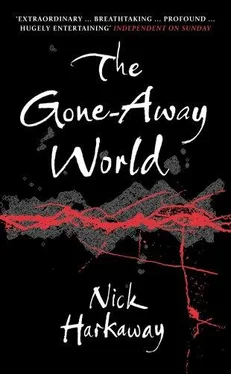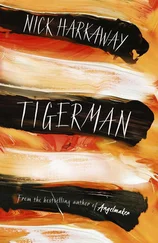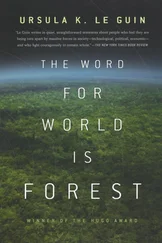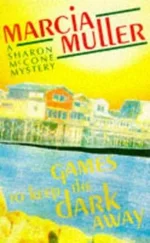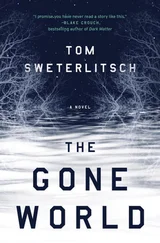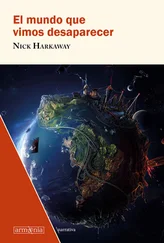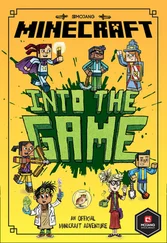Nick Harkaway - The Gone-Away World
Здесь есть возможность читать онлайн «Nick Harkaway - The Gone-Away World» весь текст электронной книги совершенно бесплатно (целиком полную версию без сокращений). В некоторых случаях можно слушать аудио, скачать через торрент в формате fb2 и присутствует краткое содержание. Жанр: Фантастика и фэнтези, Фэнтези, на английском языке. Описание произведения, (предисловие) а так же отзывы посетителей доступны на портале библиотеки ЛибКат.
- Название:The Gone-Away World
- Автор:
- Жанр:
- Год:неизвестен
- ISBN:нет данных
- Рейтинг книги:4 / 5. Голосов: 1
-
Избранное:Добавить в избранное
- Отзывы:
-
Ваша оценка:
- 80
- 1
- 2
- 3
- 4
- 5
The Gone-Away World: краткое содержание, описание и аннотация
Предлагаем к чтению аннотацию, описание, краткое содержание или предисловие (зависит от того, что написал сам автор книги «The Gone-Away World»). Если вы не нашли необходимую информацию о книге — напишите в комментариях, мы постараемся отыскать её.
The Gone-Away World — читать онлайн бесплатно полную книгу (весь текст) целиком
Ниже представлен текст книги, разбитый по страницам. Система сохранения места последней прочитанной страницы, позволяет с удобством читать онлайн бесплатно книгу «The Gone-Away World», без необходимости каждый раз заново искать на чём Вы остановились. Поставьте закладку, и сможете в любой момент перейти на страницу, на которой закончили чтение.
Интервал:
Закладка:
“One day,” they could say to one another over decaf, “all this will be fields.”
Now it was called Drowned Cross.
We came around a curve, and there it was, tucked up on its little hill and dark and empty as your dog’s kennel after you take him to the vet and say goodbye. The road went straight to it, and so did Bone Briskett, and so did we. Drowned Cross got bigger but no lighter, jagged and sprawling across the sky. The big broken tooth over the whole place was the church spire, and the rough-edged thing it had fallen against was the town clock, stuck at five fifteen for evermore. The houses were clean and pale, with terracotta roofs. The windows were unbroken. A couple of cars were parked neatly in the main square, and one had the door open; the kind of town where you left the keys in the ignition while you bought your paper. Birds flew up out of the sunroof as we went by, grey and black pigeons with mad pigeon eyes. One of them was too stupid to dodge in the right direction and bounced off the windscreen. Or maybe the others had pushed him—it’s not hard to believe in murder among pigeons. Gonzo swore. The stunned bird tumbled away and lay in the road. If it was still there when Samuel P. came by, he’d drive right over it.
No one really knew what had happened in Drowned Cross. There weren’t any survivors. No one showed up, addled and desperate, at the next town along the way; no lonely shepherd saw the whole thing from an adjoining hill. Whatever it was, it made no noise, in the grand scheme, and left no image of itself. Something came up out of the unreal and swallowed the place. Perhaps the hill under Drowned Cross eats villages. I heard a story once, on the radio, in which a group of sailors cast adrift came at last to an island where they moored for the night. They had not expected land, so far off course and bewildered by foreign stars; they had anticipated thirst and madness. They wept and kissed the ground and lit a fire to cook their supper, and at last fell into a fitful sleep. Of course, in the middle of the night they woke to a dreadful howling, and the isle on which they stood began to shake, and then great, boneless arms reached from the water to snatch at them, and they realised they had sought refuge on the back of some horrid monster of the deep.
I loved cautionary tales like that when I was a child, but sitting with Gonzo and looking down on the clean, vacant houses of Drowned Cross, I kept thinking of clams slurped with garlic sauce, and the shells thrown back into the bowl. What had happened there was nasty, plain and simple, and there’d been others, since. In the still hours of the night-time in houses all around the Pipe, people woke, and listened, and were afraid of things from beyond the Border. Somebody out there ate towns, whole, and went on his way. People said it was the Found Thousand. I hoped that wasn’t true.
The Cross itself—our road and the other one, the east–west road which went through the town and headed out into what they all figured would be the next slice of reclaimed land—was on the far side of the square. We went slowly, partly because the cobbles were slick with dew, and partly because you don’t squeal your tyres in a graveyard, no matter how much you want to leave. Something glimmered in the dust where the roads met: a silvered piece of metal engraved with what could have been a new moon or a bowl of soup with a spoon in it. It looked expensive, and I wondered how long it had sat there. Since the day Drowned Cross got its name, most likely. It could have been a cuff link, or a bracelet. It seemed sad that someone was missing it—maybe it was one of two, and he still had the other one—and then I felt guilty and crass because whoever owned it was almost certainly dead, and his missing watchstrap whojimmy wasn’t bugging him any more.
And then, as swiftly as it had come upon us, it was gone. A small place, after all. Gonzo turned the wheel, bringing the truck in a wide, powerful turn, and the last empty cottage vanished behind us. Bone Briskett’s tank went roaring out ahead, and Gonzo rapped his hands on the wheel, papapapahhh!
“The open road!” I shouted into the radio.
“Oh, ecstasy!” cried Jim Hepsobah and Sally Culpepper.
“Oh, poop-poop!” yelled Gonzo Lubitsch.
Bone Briskett didn’t say anything, but he said it in a way which made it clear he thought we were mad.
Please, dear Lord.
I want to come home.
Chapter Two
At home with kid Gonzo;
donkeys, girls, and first meetings.IT’S time to eat,” Ma Lubitsch says, a broad expanse of apron topped by a summit of greasy peanut-coloured hair. Old Man Lubitsch doesn’t hear over the buzzing of his hives, or he doesn’t care to join us, because his baggy white figure remains out in the yard, tottering from one prefab bee house to another with a can of wispy smoke. Ma Lubitsch makes a noise like a whale clearing its blowhole and sets out knives and forks, the delaminating edge of the table pushing into her belly. Gonzo’s mother is big enough that she takes up two seats in church and once near-killed a burglar with a rolled-up colour supplement. Gonzo himself, still able to count his years without resorting to two hands, has his father’s more sparing construction.
One of my first memories, in all the world: Gonzo, only a few months before, staring into my face with a stranger’s concern. He has been playing a game of indescribable complexity, by himself, in the corner of the playground. He has walked from one end of the sandpit to the other and rendered it flat in a particular place, and he has marked borders and bridges and areas of diffusion and lines of demarcation and now he needs another player and cannot find one. And so he turns to look about him and sees a small, lost child: alone in a moment of unfathomable grief. With presence of mind he directs his mother’s attention to the crisis, and she trundles over and asks immediately what is the matter and am I hurt and where are my parents and where is my home? And to these questions I have no answer. All I know is that I am crying.
Gonzo answers the disaster by approaching the white ice-cream truck at the far gate, purchasing there a red, rocket-shaped ice with a sticky centre, and this he hands me with great solemnity. Ten minutes later, by the alchemy of sugar and artificial flavours and the security they represent, I have joined Gonzo’s incomprehensible game and am winning—though perhaps he is going easy on me—and my tears are dry and crusty on my smock. During a momentary ceasefire, Gonzo informs me that this afternoon I may come to his house and meet his father, who is wise beyond measure, and partake of his mother’s cooking, which is unequalled among mortal men, and even feed biscuits to the Lubitsch donkeys, whose coats are more glossy and whose eyes are more lambent than any other donkeys in all the wide world of donkey-kind. Ma Lubitsch, watching from a small distance, recognises by the instinctual knowledges of an expat Polish mother that her family has grown by one, and is not perturbed.
In her oven gloves and enveloping apron, Ma Lubitsch gazes through the French windows a bit longer, but Gonzo’s father is now chasing a single errant bee around the hives with the smoke gun. Political dissent among the bee houses is not permitted. Ma Lubitsch makes a seesaw turn, stepping from one foot to the other once, twice, three times to bring herself back to the table to dish up, swearing the while in muttered Polish. The infant Gonzo, mighty with filial affront, dashes out to rebuke and retrieve the Old Man; I follow more slowly, five years of age and cautious with brief experience; appearances deceive. Honest faces lie and big boats sink where small ones ride out the gale. But ask me how I know, and I will not be able to tell you.
Читать дальшеИнтервал:
Закладка:
Похожие книги на «The Gone-Away World»
Представляем Вашему вниманию похожие книги на «The Gone-Away World» списком для выбора. Мы отобрали схожую по названию и смыслу литературу в надежде предоставить читателям больше вариантов отыскать новые, интересные, ещё непрочитанные произведения.
Обсуждение, отзывы о книге «The Gone-Away World» и просто собственные мнения читателей. Оставьте ваши комментарии, напишите, что Вы думаете о произведении, его смысле или главных героях. Укажите что конкретно понравилось, а что нет, и почему Вы так считаете.
